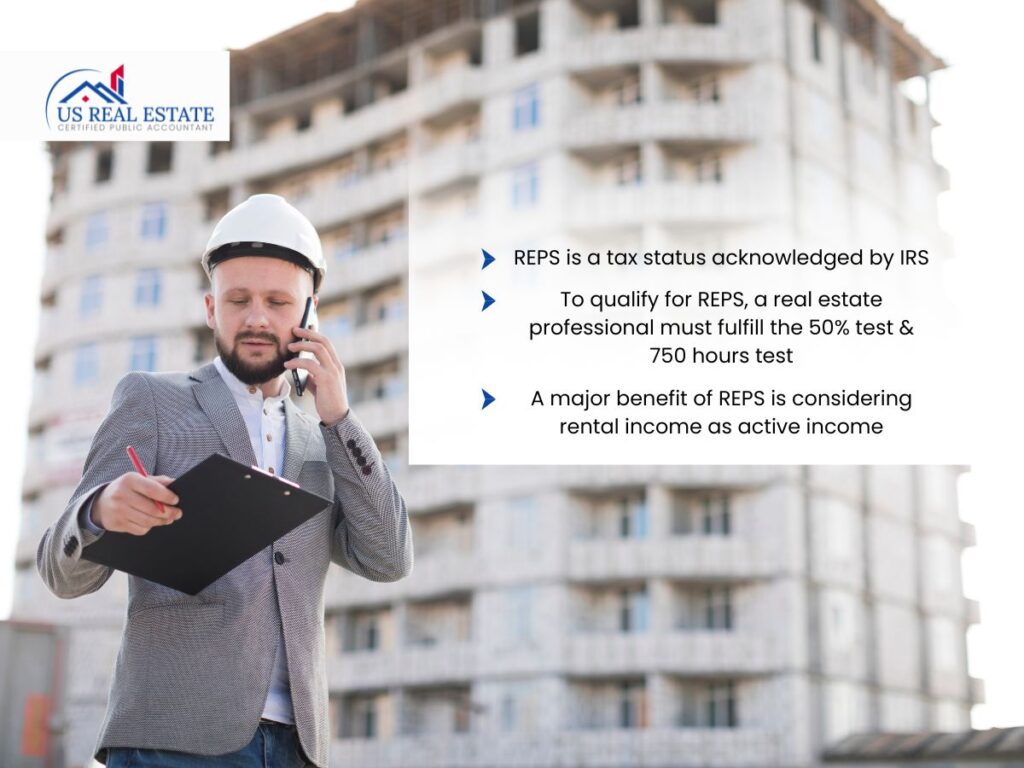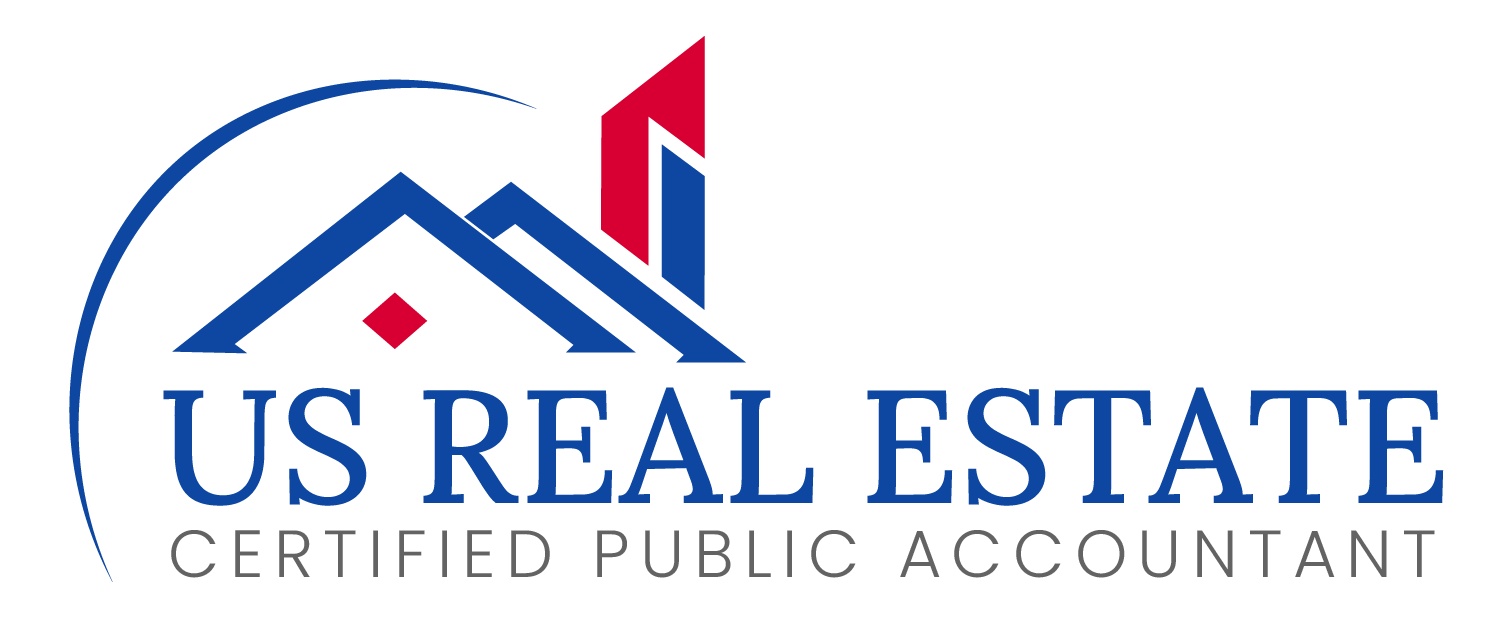
A Complete Guide to Real Estate Professional Status (REPS)
Real Estate Investment is a major source of income for many property investors in the United States. However, the tax liabilities that can be added to the property investor’s income tax amount can make an individual wonder about the worth of the real estate investment. That is when measures like the Real Estate Professional Status (REPS) come into play.
REPS can help reduce the tax liabilities of real estate investors or real property traders by qualifying rental income as active income. There are many other benefits of the REPS status. Here, we aim to discuss every element of the REPS status, what it is, its advantages, its risks and many more.
What is Real Estate Professional Status (REPS)?
Real Estate Professional Status (REPS) is a designation, or a tax status acknowledged by the Internal Revenue Service (IRS). The IRS is a statutory body that handles revenue services for the United States federal government. REPS status can be acquired by individuals who invest in real property trades or businesses in the real estate industry.
According to 26 U.S. Code § 469, the term “real property trade or business” means any real property development, redevelopment, construction, reconstruction, acquisition, conversion, rental, operation, management, leasing, or brokerage trade or business.
A developer, real estate agent, investor, or other individual can qualify for the REPS. The REPS status can be beneficial to present rental income as active income that can help deduct losses from their taxable income.

How to Qualify for REPS?
The IRS has three requirements for a property or real estate investor to qualify for the Real Estate Professional Status. Here are the details of all three requirements:
- 50% Test – An individual must invest at least 50% of their service activity in real property trades or businesses. The service activity includes leasing, buying, selling, and managing real estate property.
- 750 hours Test – The individual must perform more than 750 hours of service in real property trades or businesses. The activities can include attending seminars and conferences in the real estate industry, researching properties, analyzing property markets, and many more.
- Material Participation Test – Material Participation refers to working actively in real property trades or businesses. You need to display active investment rather than passive investment in the growth of your real estate business.
Types of Real Property Trades or Businesses
According to the definition of real property trade or business, there are 11 types of real property trades. Let us take a closer look at the details of each type:
- Development – Development includes buying or investing in new real estate that can be both residential and commercial property. It can also include activities like land acquisition, zoning, permits, structural design, and construction.
- Redevelopment – Redevelopment refers to transforming existing real estate by renovating old buildings, repurposing spaces, and more.
- Construction – Construction means building new properties that can be homes, commercial buildings, industrial facilities, and many more.
- Reconstruction – Reconstruction refers to repairing or rebuilding damaged properties due to natural disasters or other events.
- Acquisition – Acquisition is defined as the transfer of ownership in real estate property that can include individual homes, commercial buildings or other investment property.
- Conversion – Conversion is changing the use of a real estate property. For instance, converting a warehouse into a rental property or a flat.
- Rental – Rental activities include renting or leasing real estate properties to tenants. The properties can be both residential and commercial. Activities such as rent collection, tenant screening, repairs, and more can be considered rental activities.
- Operation – Day-to-day operations in the real estate business, such as buying, selling, investing or analysing the real estate property market, can be counted as operational activities.
- Management – Management refers to the overall managing activities in development, construction, acquisition, conversion, rental, or other areas.
- Leasing – Leasing is the rental agreement between a property owner and tenant that can also include activities of negotiation.
- Brokerage – Brokerage refers to the acquisition of clients for buying, selling, and investing in real estate properties.
What are the Benefits of REPS?
Real Estate Professional Status (REPS) can have various tax benefits for the real estate business. Here are some of them:
- Active Income:
The IRS considers rental income as passive income, which can make it difficult for real estate investors to deduct certain expenses against your rental income. However, with the REPS status, rental income is considered active income that can help deduct losses and expenses from the rental income with no limitations.
- Deducting Rental Income:
REPS can help to deduct rental losses without any restrictions against their other income. This can be beneficial for reducing the overall income tax liability for property investors.
- Long Term Capital Gains:
When you sell a property or asset that is held for more than a year, you are liable for Long Term Capital Gains Tax. Being liable for the Long Term CGT has more advantages due to the maximum rate of CGT being currently at 20%, while Income Tax rates can reach up to 30%. So, real estate professionals who invest in properties and sell them at a profit can reap the benefits of lower tax rates.
- 3.8% Net Investment Income Tax (NIIT):
The 3.8% Net Investment Income Tax (NIIT) is liable for passive rental income. So, after qualifying for the real estate professional status, the rental income can be qualified as active income, making real estate investors exempt from the 3.8% NIIT.
- Increased Depreciation:
As a real estate professional, investors can deduct the purchase cost of rental and real estate properties as the value of the properties declines over time.
What Could be the Risks of REPS?
While achieving the Real Estate Professional Status has numerous benefits for real estate investors, there can be a number of challenges and risk associated with the status. Here are some of them:
- IRS Inquiry:
The Internal Revenue Service (IRS) inquires real estate professionals with REPS and their property portfolio with heightened scrutiny. This a lead to the real estate professionals having to conduct audits and corrections to their tax returns.
- Time Commitment:
Maintaining the REPS status can require various demands and significant time and effort. So, juggling between real estate investments and other business commitments can be challenging.
- Changing Tax Rules:
The taxation environment of each country is ever changing which can directly impact a property investment decision.
- Balancing Real Estate Status:
The maintenance of the REPS status can be challenging and time-consuming. So, it can be difficult to maintain your REPS status while committing to other business commitments.
Conclusion
Achieving a Real Estate Professional Status (REPS) can offer significant tax advantages for real estate investors. This includes the ability to consider rental income as active income and deduct losses from other sources of income. However, qualifying and maintaining REPS comes with its own challenges, such as time commitments, increased IRS attention, and navigating complex tax rules.
For those who meet the requirements, REPS can be a useful way to maximize tax efficiency and expand their real estate portfolio. Nevertheless, it’s important to carefully consider the benefits against the potential risks and seek advice from a tax professional.



